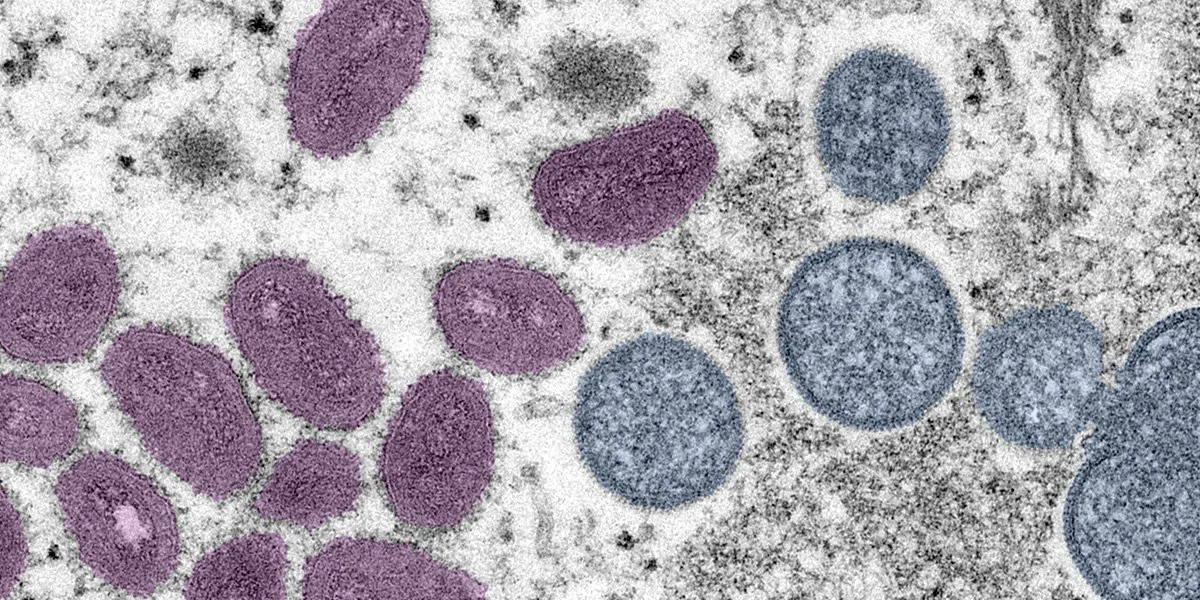Monkeypox is in Weld County. Here’s how public health officials are handling it. Hint: we have very limited vaccines
Monkeypox is in Weld County. Photo courtesy of the Centers for Disease Control.
By Kelly Ragan
Monkeypox is in Weld County, and if it spreads, health officials don’t appear to be in a great position to handle it. In fairness, neither does the rest of the country.
The Weld County Department of Health and Environment confirmed two cases in a news release last week. The first case was identified in Weld on July 13, said Val Smith, Weld’s epidemiologist. The health department announced the second case in a news release July 29.
“We are seeing cases increase (statewide), but they are not exponentially increasing,” Smith said. That’s good news -- it means Monkeypox isn’t spreading remotely as fast as COVID-19.
As of Monday, Weld County had received a total of 10 vaccines. Only about 90 vaccines total have been allocated to Weld from the Strategic National Stockpile. Statewide, Colorado has been allocated a little more than 5,000 doses.
“We are concerned we aren’t going to be able to respond fast enough, but we’ll work with what we are allocated,” Smith said.
The demand for monkeypox vaccines already far outstrips national supply and appointments have been difficult to get, reported the New York Times.
State officials on Wednesday reported 75 cases in Colorado. As of Aug. 2, there were 6,326 confirmed cases of Monkeypox in the U.S., and 26,208 cases globally, according to the Centers for Disease Control.
While much of this sounds familiar – low vaccine supplies, difficulty getting tested, etc., -- Mark Lawley, the executive director of the health department, said he and his team learned from their experience navigating COVID-19.
Many of those lessons centered on getting the right communication out, frequently.
“There was so much misinformation around vaccines,” Lawley said. “That lent itself to vaccine hesitancy.”
Lawley said the health department is also in frequent communication with the county’s Office of Emergency Management and is poised to escalate their response if necessary.
What is Monkeypox?
Monkeypox is a cousin of smallpox, but it causes a (much) milder disease. It’s rarely fatal, according to the Centers for Disease Control.
The viral infection typically begins with symptoms similar to COVID-19 or the flu. Then, of course, there’s the painful rash.
“There will be a fever, body aches, stuffy nose, then you might have some lymph nodes that swell,” said Smith. “But some people are not displaying these symptoms, some go straight to the rash phase.”
According to Kaiser Health News, the rash usually starts off as red spots that evolve into fluid-filled and then pus-filled bumps. They might look like blisters or pimples at first. The bumps eventually open into sores and scab over. Until those sores scab over and fall off, people are considered infectious.
Monkeypox spreads through close contact such as sex, kissing, massage, according to KHN.
The highest risk factors, according to the Weld health department, are men who have sex with men, having multiple sex partners, or having anonymous sex.
While the current outbreak has primarily spread through sexual contact, that’s *not* the only way it spreads. It can also be transmitted through respiratory droplets. It is *not* considered a sexually transmitted infection.
Testing sites
Weld County recommends folks should first contact their primary care provider to discuss testing, as health care providers can submit specimens through commercial labs.
But if you *don’t* have a primary care provider or insurance, the health department does offer free monkeypox tests.
Walk-ins are acceptable, but appointments are encouraged.
The health department asks that folks coming in for tests cover any lesions or sores and wear a well-fitting mask over their mouth or nose when they come in for tests.
To make an appointment, call (970) 304-6420.
According to the health department, vaccines given within four days of exposure can help prevent illness, and vaccines given between four days and 14 days after exposure can prevent serious illness.
How do tests work?
According to the county, the test involves swabbing a skin lesion. Results are typically available within 48 hours.
Who should get tested?
According to the county, public health experts recommend folks get tested if they have a new rash, lesions, or sores with pus, and have had close contact with someone infected with monkeypox.
Vaccines
Weld had 10 vaccines in stock as of Monday and is set to receive 90 vaccines from the national stockpile.
Vaccines are available to people 18 years old and up, said Cynthia Horn, Weld’s chief nursing officer.
Prevention
Public health experts recommend these tips to preventing infection.
Avoid contact with people who have suspected or confirmed monkeypox.
Do not touch the rash or lesions of someone with monkeypox.
Do not kiss, hug, cuddle or have sex with someone who has monkeypox.
Do not share eating utensils, cups, or toothbrushes with someone who has monkeypox.
Avoid contact with materials that have been in contact with someone who has monkeypox.
This includes clothing, bedding, towels, etc.
If you must handle contaminated materials, wear a mask and disposable gloves when doing so and wash materials with warm water and detergent.
Wash your hands often with soap and water for at least 20 seconds or use an alcohol-based hand sanitizer.
Avoid contact with animals that could be infected, especially in areas where monkeypox has been confirmed.
If caring for someone who has monkeypox, encourage the person to cover skin lesions and wear a medical mask. Avoid skin-to-skin contact if possible.
If you are sick with monkeypox
Stay at home and isolate (you know the drill).

